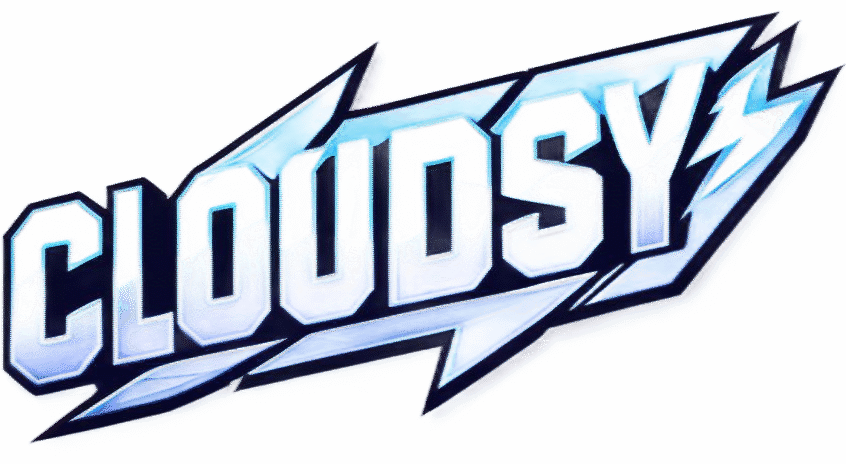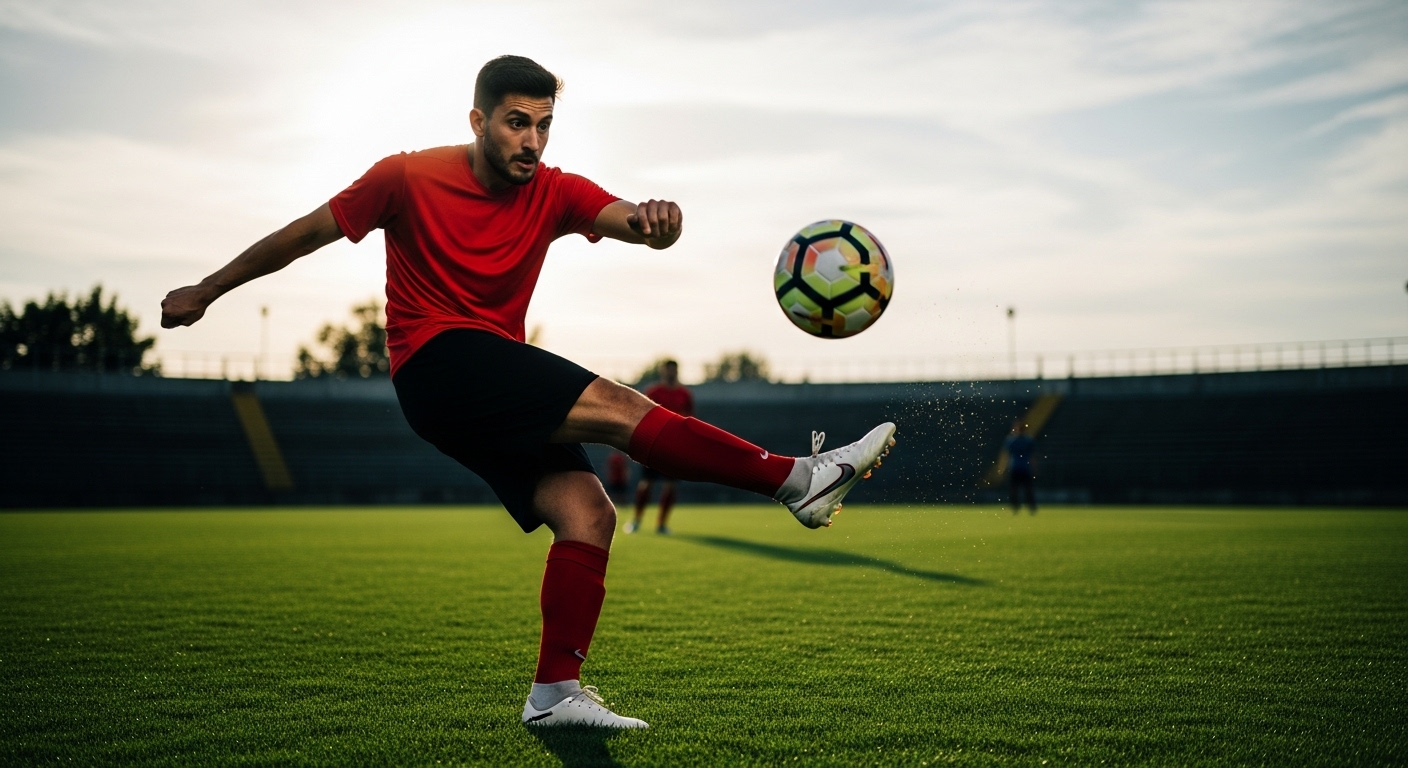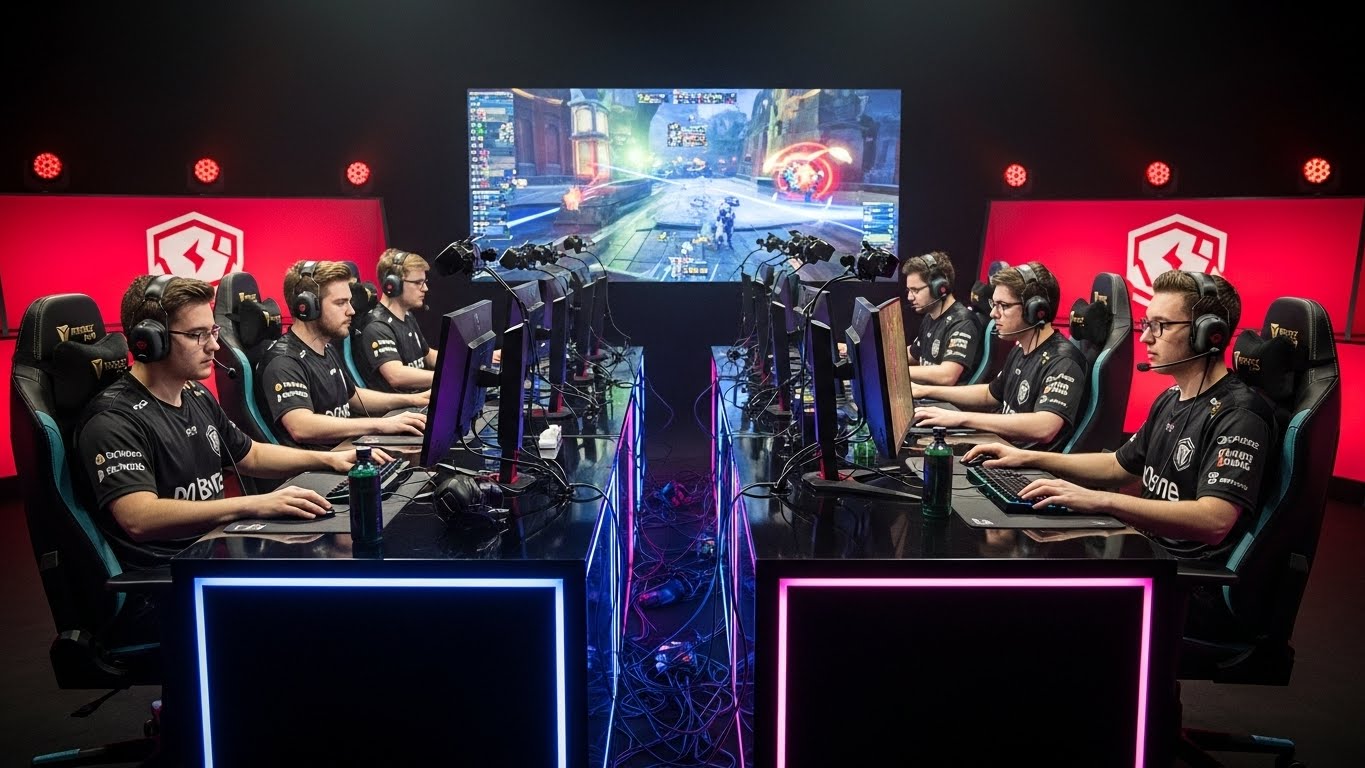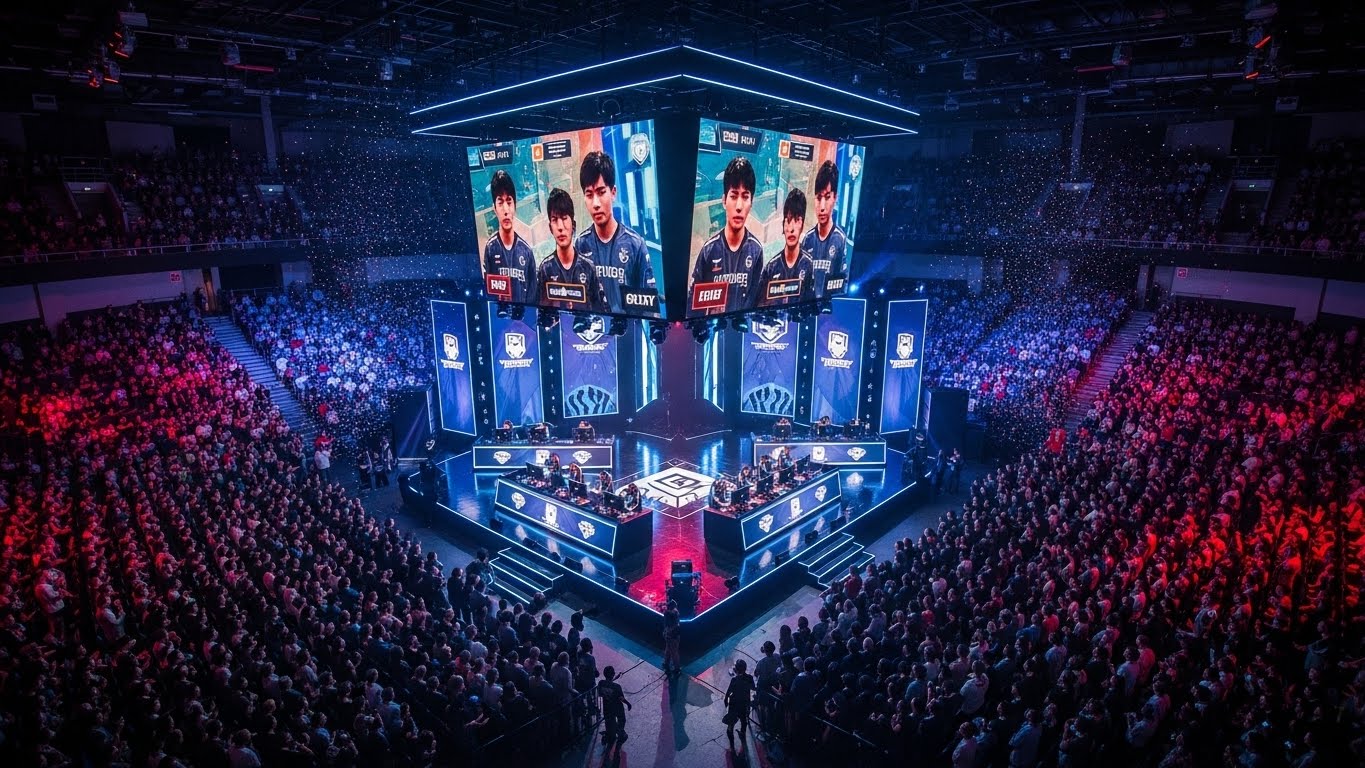Introduction
In the world of gaming, precision and reaction time can mean the difference between victory and defeat. Whether it’s a first-person shooter, a battle royale, or a strategy-based esports title, accuracy plays a defining role in player performance. Yet one of the most overlooked factors that influence gaming accuracy is sleep.
Gamers often spend long hours grinding ranks, practicing combos, or streaming to audiences, sacrificing rest in pursuit of progress. However, this habit can have serious consequences on cognitive function, motor coordination, and decision-making — all of which are essential for maintaining peak accuracy. Sleep isn’t just about feeling rested; it’s a biological necessity that affects the way our brains process information and how our bodies respond in high-pressure situations.
In this blog, we’ll explore the science behind sleep, how it affects reaction time, focus, and accuracy in gaming, and why rest is as vital to success as any in-game skill or training routine.
The Science of Sleep and the Human Brain
Sleep is a complex physiological process that allows the brain and body to recover, repair, and reorganize. It occurs in several stages — light sleep, deep sleep, and REM (rapid eye movement) sleep — each playing a unique role in cognitive performance.
During deep sleep, the body restores energy, repairs tissues, and strengthens the immune system. During REM sleep, the brain consolidates memories and enhances learning, including motor and cognitive skills — the very skills that gamers depend on for precision and fast decision-making.
When a gamer skips sleep or experiences poor-quality rest, the brain misses out on these critical restorative phases. The result is slower reaction time, decreased attention span, and impaired accuracy. Essentially, sleep deprivation creates a mental fog that affects everything from muscle memory to hand-eye coordination.
The Connection Between Sleep and Gaming Accuracy
Gaming accuracy is influenced by several key mental and physical processes: reaction time, focus, motor coordination, and emotional regulation. All of these functions depend heavily on adequate sleep.
When we are well-rested, the brain’s prefrontal cortex — the area responsible for decision-making and attention — functions efficiently. Neural connections are optimized, communication between the brain and body is fast, and responses to stimuli are sharp. This enables gamers to react to enemy movements, adjust aim, and execute precise actions almost instinctively.
However, sleep deprivation disrupts these processes. The brain struggles to process information quickly, leading to delayed responses and mistakes. Even a single night of poor sleep can reduce a gamer’s reaction time by hundreds of milliseconds — a significant disadvantage in competitive play where split-second decisions determine the outcome of matches.
Reaction Time and Sleep Deprivation
Reaction time is the ability to respond rapidly to a visual or auditory cue. In gaming, it determines how fast a player can spot an opponent, press a button, or execute a movement. Reaction time is one of the first abilities to decline under sleep deprivation.
Studies in cognitive science consistently show that lack of sleep slows down brain processing speed. The synapses that transfer information between neurons fire less efficiently, meaning the time between perception and response increases. For gamers, this can result in missed shots, delayed dodges, or mistimed abilities.
Professional esports players often rely on milliseconds of advantage, and a lack of sleep can completely destroy that edge. For instance, a player who normally reacts to a target in 200 milliseconds might experience a delay of 50 to 100 milliseconds after a sleepless night. That delay can be the difference between landing a headshot or being eliminated.
Focus and Concentration in Sleep-Deprived Gamers
Another major consequence of poor sleep is reduced focus. Concentration is the foundation of accuracy — the ability to track targets, maintain situational awareness, and make smart tactical choices depends on sustained mental attention.
When the brain is tired, the prefrontal cortex struggles to maintain consistent focus. Attention drifts, distractions become more frequent, and the player loses awareness of their surroundings. This not only impacts shooting accuracy but also decision-making under pressure.
Gamers who play after insufficient sleep often report “tunnel vision,” where they focus on a single aspect of the game and fail to notice other critical elements. This cognitive narrowing can lead to avoidable mistakes, such as missing an enemy on the radar or walking into traps.
In long gaming sessions or tournaments, fatigue compounds this problem. Even if a player starts off performing well, mental exhaustion gradually reduces their ability to stay locked in, leading to inconsistent aim and reaction.
Hand-Eye Coordination and Motor Skills
Hand-eye coordination is one of the most measurable aspects of gaming performance. It requires the brain to synchronize visual information with physical movements. This synchronization becomes impaired when a gamer is sleep-deprived.
Sleep affects the cerebellum — the part of the brain responsible for fine motor control and balance. Lack of rest interferes with this system, causing slower and less accurate movements. Gamers may find their crosshair movement less steady, their button inputs less precise, or their timing off during crucial plays.
In fast-paced esports titles like Valorant, Counter-Strike, or Apex Legends, these small lapses in motor precision can snowball into lost matches. Even minor delays in aiming or misclicks can ruin an otherwise perfect play.
Sleep also affects muscle recovery. Long gaming sessions can strain the hands, wrists, and shoulders, and without proper rest, the body cannot repair the microdamage that accumulates from repetitive movements. Over time, this can lead to fatigue, soreness, or even injury, further reducing gaming performance.
Memory, Learning, and Game Strategy
Sleep plays a crucial role in memory consolidation — the process by which the brain transfers short-term memories into long-term storage. This process is vital for learning new skills, remembering strategies, and improving in-game performance.
Gamers constantly rely on memory: map layouts, weapon recoil patterns, enemy behavior, and strategy coordination with teammates. During sleep, especially in the REM phase, the brain replays and strengthens these neural patterns, reinforcing learned skills.
When sleep is cut short, memory consolidation is incomplete. The next day, gamers may find it harder to recall specific strategies or execute complex movements with the same consistency. This is why professional players often emphasize rest as part of their training regimen — sleep literally makes practice more effective.
For example, players who get a full night of sleep after practice are far more likely to retain aim accuracy and strategic awareness compared to those who stay up gaming or streaming late into the night.
Emotional Stability and Decision-Making
Gaming accuracy isn’t just about physical precision — it’s also influenced by emotional control. Sleep-deprived players are more prone to frustration, impatience, and stress.
Lack of sleep affects the amygdala, the brain’s emotional center, causing heightened emotional reactions. This leads to impulsive behavior and poor decision-making in-game. A tired player might push into a fight too early, ignore team coordination, or rage after losing a round.
These emotional fluctuations reduce composure and focus, leading to a downward spiral of performance. Competitive gaming requires calm and rational decision-making, especially in high-pressure moments. Sleep ensures emotional balance, allowing players to stay cool, think clearly, and execute precise actions even in intense matches.
The Hidden Dangers of All-Night Gaming Sessions
For many gamers, all-night sessions are a common ritual. Whether it’s grinding ranks or streaming for an international audience, the temptation to skip sleep can be strong. However, the effects of staying awake for extended periods are severe and cumulative.
After 16 hours of wakefulness, cognitive performance starts to decline significantly. After 20 hours, it can resemble the impairment caused by alcohol intoxication. Reaction time slows, attention wavers, and hand-eye coordination deteriorates dramatically.
Gamers might feel “wired” or alert due to adrenaline or caffeine, but their brain’s processing capacity is still diminished. This mismatch between perceived alertness and actual performance often leads to overconfidence and increased errors.
Moreover, lack of sleep disrupts the body’s circadian rhythm — the natural biological clock that regulates energy, mood, and focus. Disrupting this cycle over time can lead to chronic fatigue, burnout, and long-term health problems such as anxiety or insomnia.
Sleep Quality vs. Sleep Quantity
It’s not just about how long you sleep, but also how well you sleep. Quality sleep includes cycling through the different sleep stages — light, deep, and REM — multiple times per night. Interruptions, noise, blue light exposure, or irregular schedules can fragment sleep, reducing its restorative benefits.
Gamers who stay on screens late into the night face additional challenges. The blue light emitted by phones, monitors, and LED lights suppresses melatonin production, a hormone that signals the body it’s time to rest. This makes it harder to fall asleep and shortens REM sleep duration.
To improve sleep quality, it’s important to establish a routine: limiting screen time before bed, maintaining consistent sleep hours, and creating a dark, quiet environment. Even small changes, like using night mode on screens or dim lighting in the evening, can make a noticeable difference.
Sleep and Esports Training
Professional esports organizations increasingly recognize sleep as a critical part of training. Just as athletes in traditional sports monitor nutrition and rest, competitive gamers are now adopting similar practices.
Coaches and performance managers track players’ sleep patterns using wearable devices or apps to ensure they get enough rest between practice sessions and tournaments. Some teams even employ sleep specialists to optimize recovery schedules and performance cycles.
This shift reflects a growing understanding that consistent sleep improves learning, reaction time, and resilience under stress. Esports players who maintain healthy sleep habits not only perform better but also have longer, more sustainable careers.
How Much Sleep Do Gamers Need?
While individual needs vary, most adults require seven to nine hours of quality sleep each night. Competitive gamers, due to the intense cognitive and motor demands of their craft, may benefit from the upper end of that range.
Short naps can also help. A 20- to 30-minute nap between practice sessions or before tournaments can improve alertness and concentration. However, excessive napping or irregular sleep patterns can disrupt the natural cycle, so balance is key.
Gamers should also pay attention to signs of fatigue — irritability, slower reaction, and increased mistakes often indicate sleep deprivation. Listening to the body and allowing proper rest is crucial to maintaining consistent performance.
Practical Tips for Better Sleep and Improved Accuracy
- Set a consistent sleep schedule: Go to bed and wake up at the same time each day, even on weekends.
- Limit late-night gaming: Avoid high-intensity matches close to bedtime to allow your brain to wind down.
- Use blue light filters: Enable night mode on screens or wear blue light-blocking glasses.
- Create a sleep-friendly environment: Keep your room cool, dark, and quiet.
- Avoid caffeine late in the day: Energy drinks or coffee can stay in your system for hours.
- Exercise regularly: Physical activity improves sleep quality and reduces stress.
- Practice relaxation: Try deep breathing or meditation before bed to calm the mind.
- Stay hydrated and eat well: Nutrition affects energy levels and sleep efficiency.
By following these steps, gamers can enhance both sleep and in-game performance, leading to sharper focus and better accuracy over time.
The Long-Term Benefits of Healthy Sleep Habits
Consistent, high-quality sleep doesn’t just improve short-term accuracy — it also enhances long-term gaming development. Players who prioritize rest experience better learning retention, improved reaction time, and higher overall consistency.
Healthy sleep also boosts creativity and adaptability, allowing players to think strategically and innovate during matches. Over time, well-rested gamers build stronger habits, handle stress better, and maintain higher motivation levels.
In contrast, chronic sleep deprivation can lead to burnout, mental fatigue, and physical strain. Many talented gamers experience career stagnation or health decline simply because they overlook rest as part of their training discipline.
Conclusion
Sleep is one of the most powerful yet underrated tools for improving gaming accuracy. Every click, flick, and movement depends on a well-rested brain and body. Without sufficient sleep, even the most skilled players struggle with slower reactions, reduced focus, and inconsistent aim.
In an era where esports demands peak performance and split-second precision, understanding the relationship between sleep and accuracy is essential. Rest is not a weakness or a waste of time — it’s a competitive advantage.
By prioritizing healthy sleep habits, gamers can achieve sharper reflexes, steadier hands, and clearer minds. The path to better accuracy doesn’t always come from more practice; sometimes, it begins with simply getting a good night’s sleep.



